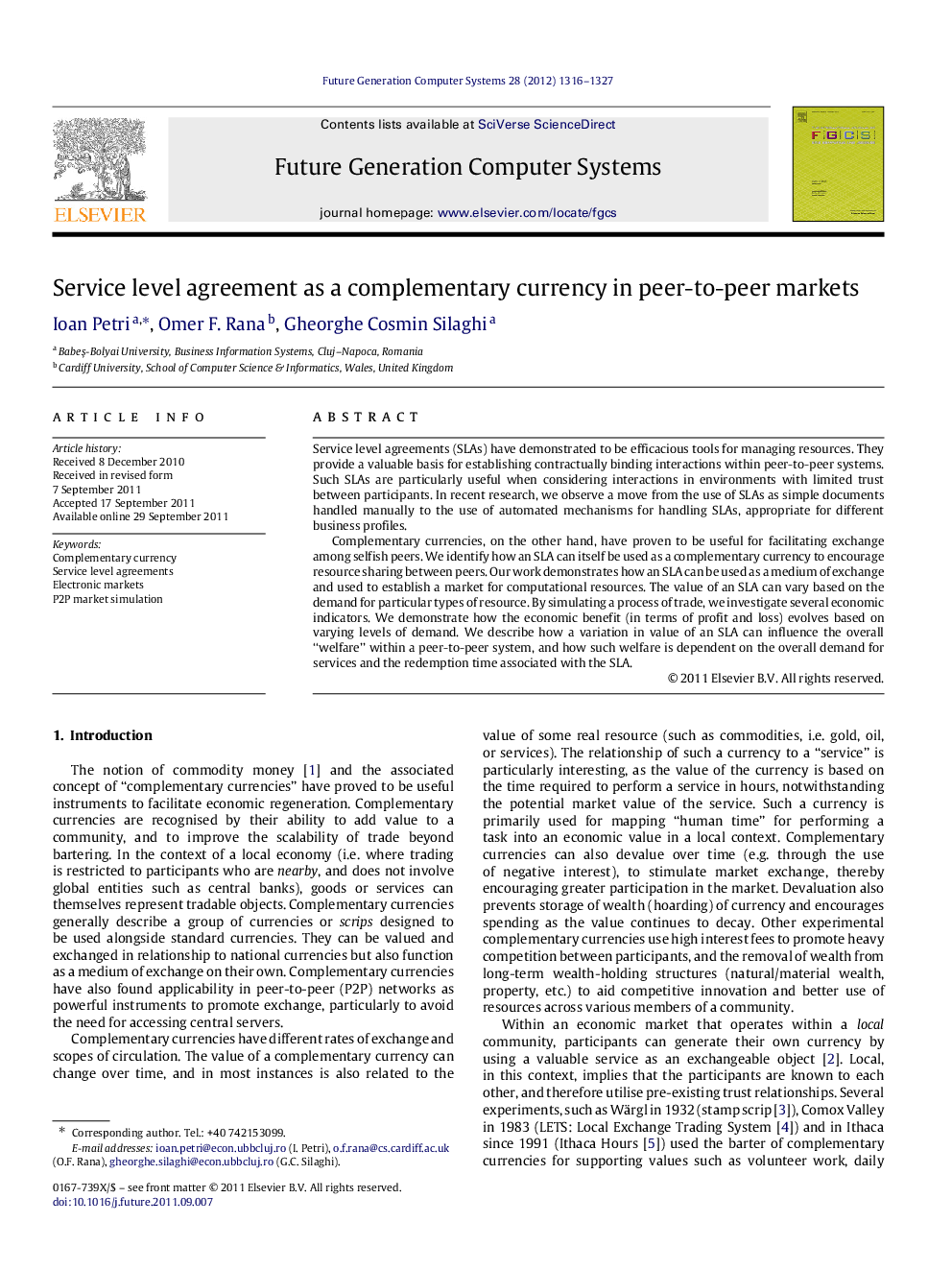| Article ID | Journal | Published Year | Pages | File Type |
|---|---|---|---|---|
| 425974 | Future Generation Computer Systems | 2012 | 12 Pages |
Service level agreements (SLAs) have demonstrated to be efficacious tools for managing resources. They provide a valuable basis for establishing contractually binding interactions within peer-to-peer systems. Such SLAs are particularly useful when considering interactions in environments with limited trust between participants. In recent research, we observe a move from the use of SLAs as simple documents handled manually to the use of automated mechanisms for handling SLAs, appropriate for different business profiles.Complementary currencies, on the other hand, have proven to be useful for facilitating exchange among selfish peers. We identify how an SLA can itself be used as a complementary currency to encourage resource sharing between peers. Our work demonstrates how an SLA can be used as a medium of exchange and used to establish a market for computational resources. The value of an SLA can vary based on the demand for particular types of resource. By simulating a process of trade, we investigate several economic indicators. We demonstrate how the economic benefit (in terms of profit and loss) evolves based on varying levels of demand. We describe how a variation in value of an SLA can influence the overall “welfare” within a peer-to-peer system, and how such welfare is dependent on the overall demand for services and the redemption time associated with the SLA.
► We use a service level agreement (SLA) as a complementary currency (exchangeable token) between participating nodes within a peer-to-peer (P2P) network. ► We demonstrate that the system benefit is influenced by the number of participants, the level of demand, and the type of SLA. ► The system experiences a level of benefit directly related to the SLA submission interval. ► We discover that the heterogeneity of types can represent an important factor that can induce new levels of welfare. ► We confirm that the number of exchanged SLAs can be the cause for a variation in system welfare.
